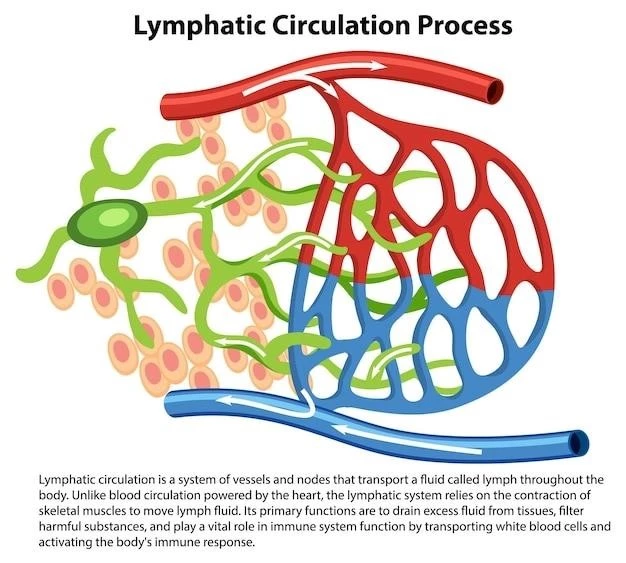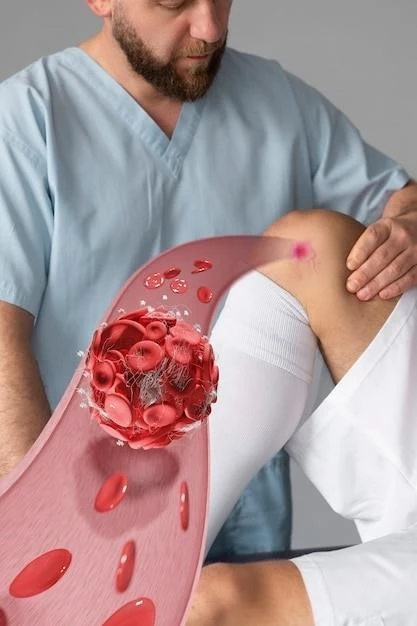Overview of Angiofollicular Lymph Hyperplasia
Understanding the causes of Angiofollicular Lymph Hyperplasia is crucial for proper management․ Stay informed about the symptoms and seek a timely diagnosis․ Explore various treatment options available and focus on effective management techniques․ Keep an eye out for any complications and adopt lifestyle tips to cope better․ Stay updated on the latest research and join support groups for valuable assistance․
Causes of Angiofollicular Lymph Hyperplasia
Angiofollicular Lymph Hyperplasia, also known as Castleman disease, can be caused by viral infections like HIV or herpes virus․ It can also be associated with autoimmune diseases and may be triggered by an abnormal overgrowth of lymphoid tissue․ Genetic factors can play a role in predisposing individuals to this condition․ Understanding these underlying causes can help in managing the disease more effectively․

Symptoms and Diagnosis of Angiofollicular Lymph Hyperplasia
Common symptoms of Angiofollicular Lymph Hyperplasia include enlarged lymph nodes, fatigue, night sweats, fever, and weight loss․ To diagnose this condition, doctors may perform physical exams, blood tests, imaging scans, and biopsies of affected tissue․ It’s essential to communicate any symptoms experienced to your healthcare provider promptly․ Early diagnosis is key to initiating appropriate treatment and managing the disease effectively․
Treatment Options for Angiofollicular Lymph Hyperplasia
Treatment for Angiofollicular Lymph Hyperplasia may vary based on the subtype and severity of the disease․ Options include medications like corticosteroids, immunosuppressants, and monoclonal antibodies․ In some cases, surgery or radiation therapy may be recommended to manage localized symptoms․ Discuss with your healthcare team to determine the most suitable treatment plan for your specific condition․ Regular follow-ups are crucial to monitor response to treatment and adjust as needed․
Management of Angiofollicular Lymph Hyperplasia
Effective management of Angiofollicular Lymph Hyperplasia involves a multidisciplinary approach․ It’s essential to adhere to the treatment plan outlined by your healthcare team․ Regular monitoring of symptoms, blood work, and imaging studies is crucial․ Maintain open communication with your healthcare provider and report any new or worsening symptoms promptly․ Additionally, focus on maintaining a healthy lifestyle, including a balanced diet, regular exercise, stress management, and adequate rest to support overall well-being․
Complications Associated with Angiofollicular Lymph Hyperplasia
Angiofollicular Lymph Hyperplasia can lead to various complications if not properly managed․ These complications may include organ dysfunction due to enlarged lymph nodes compressing surrounding structures, an increased risk of infections, and autoimmune disorders․ In some cases, the disease can transform into a more aggressive lymphoma․ It’s important to stay vigilant about any new symptoms or changes in health status and promptly inform your healthcare provider to address potential complications effectively․
Lifestyle Tips for Coping with Angiofollicular Lymph Hyperplasia
Living with Angiofollicular Lymph Hyperplasia can be challenging, but adopting certain lifestyle measures can help improve your quality of life․ Ensure you maintain a well-balanced diet rich in nutrients to support your immune system․ Stay physically active within your limits and practice stress-reducing activities such as yoga or meditation․ Adequate rest and proper hydration are essential․ Engage in activities you enjoy and seek emotional support from loved ones or support groups․ Prioritize self-care and listen to your body’s needs․
Research and Developments in Angiofollicular Lymph Hyperplasia
Ongoing research into Angiofollicular Lymph Hyperplasia focuses on identifying novel treatment approaches and understanding the underlying mechanisms of the disease․ Clinical trials are investigating new medications, immunotherapies, and targeted therapies to improve outcomes for individuals with this condition․ Stay informed about emerging developments by discussing potential research opportunities with your healthcare provider․ Participating in clinical trials can provide access to cutting-edge treatments and contribute to advancing medical knowledge in the field of Angiofollicular Lymph Hyperplasia․
Support Groups for Individuals with Angiofollicular Lymph Hyperplasia
Joining a support group can provide valuable emotional support, information, and a sense of community for individuals living with Angiofollicular Lymph Hyperplasia․ These groups offer a platform to connect with others who understand your experiences, share coping strategies, and provide encouragement during challenging times․ Additionally, support groups may organize educational sessions, guest speakers, and social events to foster a supportive environment․ Explore local or online support groups to enhance your emotional well-being and navigate your journey with Angiofollicular Lymph Hyperplasia․
